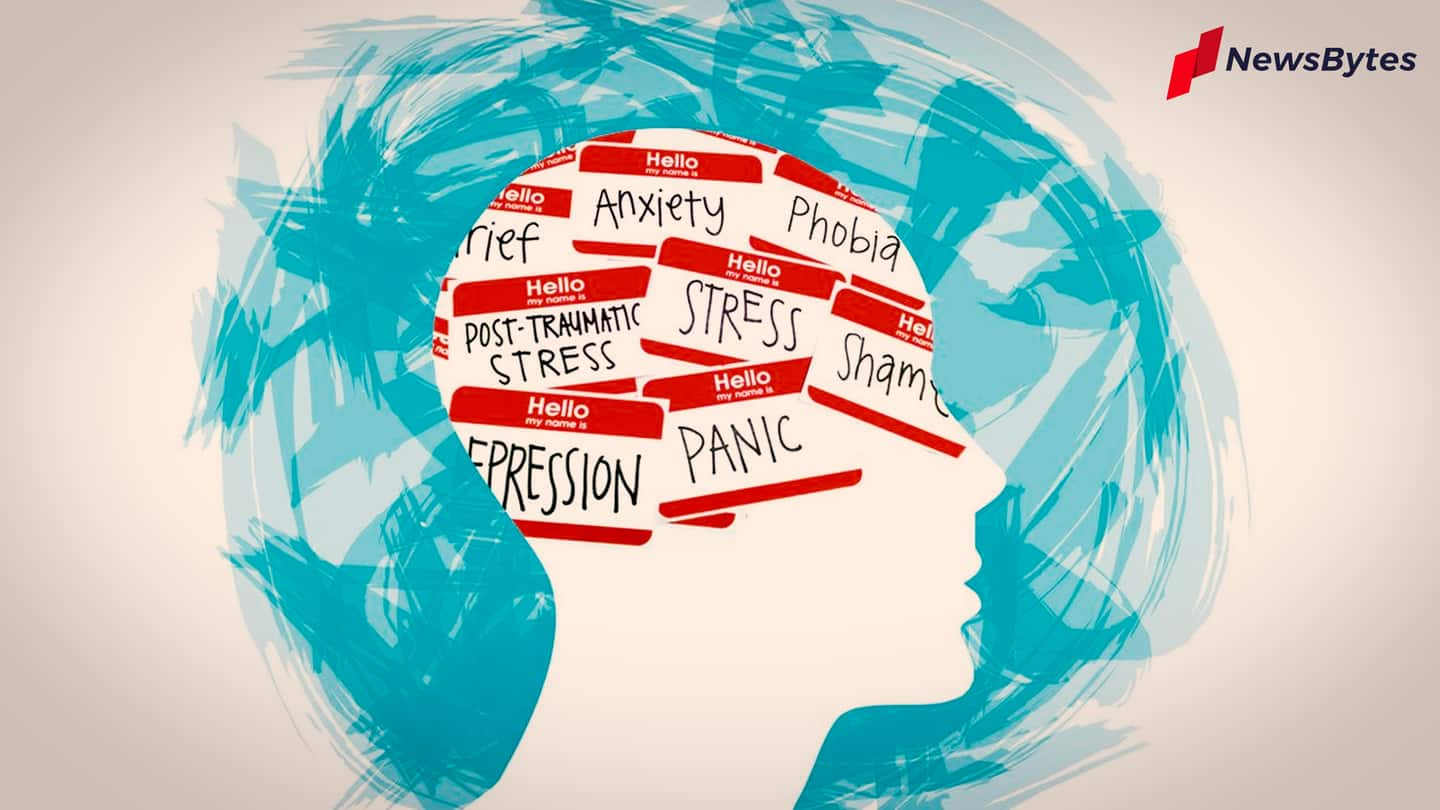
Coronavirus pandemic: How to deal with mental health issues
What's the story
Everything has (figuratively) been turned upside down in the coronavirus-infected world; staying cheerful or motivated seems impossible. While everyone's first concern is physical health at the moment, one can't lose sight of mental wellness either. NewsBytes spoke to a mental wellness coach, Kanchan Rai, to understand the pandemic's effects on mental health and ways to cope up. Read on.
Expert
Kanchan Rai, a Harvard graduate, teaches how to combat depression
A Harvard Business School graduate, Rai is a licensed mental wellness coach who teaches ways to combat depression and helps overcome mental trauma. Having battled depression herself, she believes that there are definitive ways to overcome it. Through her "Let us Talk" endeavor, she hopes to help those struggling with problems sparked by the coronavirus pandemic. She was awarded for her efforts as well.
Mental health
Taboos have been shattered, mental health is being discussed: Rai
When NewsBytes asked Rai if she thinks mental health is getting the attention it deserves, especially after the outbreak, she replied in the affirmative. "People have definitely become more aware, more so after the tragic demise of actor Sushant Singh Rajput. But I believe it shouldn't be a one-off thing where people discuss mental health for merely a few days," she stated.
Quote
"Mental health must be discussed like economic health"
"Mental health is an important issue and should be spoken about just like how economic health is. Fortunately, there are many NGOs and organizations, including mine, which help people cutting across generations. No one should take mental health problems lightly," she said.
Tips
This unprecedented crisis has affected even the counselors
Evidently, the pandemic has isolated people more than ever. Millions are stuck inside homes, thousands are jobless, and uncertainty has become the stagnant emotion. When asked for tips to make the situation a little less overwhelming, Rai said, "This is a fairly new situation. There is no one-size-fits-all approach. Even counselors are struggling." However, she emphasized on making a routine and sticking to it.
Routine
Make a routine, push yourself to stick to it: Rai
Rai then explained that while making a schedule is often mentioned during conversations, people rarely push themselves to stick to it. "When you make a routine demarcating your TV, social media, news, family, and me time, you should follow it as it will be helpful in the long run. It is wrong to focus on a schedule only in the initial days," she added.
Journalists
To journalists, stuck in news-cycle, Rai said, "Focus on positives"
As a follow-up to her answer, NewsBytes asked if she has any special tips for journalists, considering they are stuck in news cycles for the better part of their days. Rai said they should focus on the positives. "When the whole world is locked down, only journalists can move around. I believe if they count the blessings, it will do them good," she added.
Quote
Rai spoke about dedicating at least 5 minutes to self
"The mantra of following a routine applies to them as well. If journalists can take out at least five minutes to do things they like, or think happy thoughts, it will help them deal with the negative news pieces they come across," she explained.
Help
Look for the red flags. Don't ignore them: Rai
When asked how can people know that they need help, Rai said "watch out for red flags." She underlined that feeling an array of emotions is absolutely normal. "If you know why you are feeling low or de-motivated, then you need not seek help. However, if you feel dejected without any reason and the emotion persists for days, you shouldn't ignore it," she added.
Suicides
Rai feels suicides won't rise as people are more aware
Further, Rai was questioned if she thinks there would be a spike in suicides due to the pandemic. Answering in the negative, she noted that people are no longer shy to seek help. "The dynamics are changing. For example, men also accept that they don't have to be strong always," she said. However, she lamented over sensationalism related to suicides while pointing towards Sushant's death.
Quote
Sensitive issues should be far away from sensationalism: Rai
"Society in general likes sensationalism, which was seen clearly after Sushant's death. I met 2-3 people who told me they are thinking of ending their lives, considering the "fame" which this episode got. Whatever happened after his death was highly unfortunate," she went on.
Final thoughts
"Nothing matters more than your love for yourself"
NewsBytes also asked Rai what can organizations do to focus on their employees' mental health. While spreading awareness and discussions topped the suggestions' list, she also added, "Just like HRs organize team-bonding exercises, some events should happen solely on mental health." Before ending the conversation, Rai had a final thought to share - Please remember that nothing matters more than you matter to yourself.